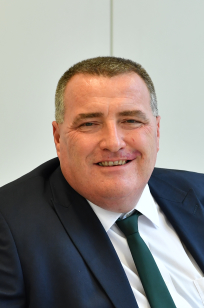Comment / At the heart of it
As you know, my theme for 2022 is Reimagining the future and we are now at a key stage where the future is presenting some very immediate challenges across England, Scotland, Wales and Northern Ireland.
In England, the NHS is preparing for the ‘go live’ of 42 integrated care systems on 1 July and work has been ongoing to develop performance and financial plans for 2022/23.
This is clearly focusing attention on the challenging targets relating to elective care and diagnostics.
And it will also have underlined the importance of collaboration at system and local level to improve flow between hospital and social care settings.
All this is to be delivered within an extremely constrained financial envelope, while coping with the residual and ongoing impact of the pandemic.
In addition, the finance leaders within the new integrated care boards are building coherent teams, drawn mainly from clinical commissioning group finance staff transferring into the new organisations. These teams will need to ensure robust governance and financial stewardship, while looking to the broader agenda of focusing on population health and addressing health inequalities.
While the English restructuring pushes these issues to the fore, the challenges of performance, financial control, system working and population health are, in fact, common across all four UK nations.
More integrated care is a common goal and we must take opportunities to learn from the different approaches being used to achieve it.
The other stand-out challenge facing health and social care relates to workforce. Significant vacancies exist right across the system in a wide range of professions, including medicine, nursing, allied healthcare and social care.
These vacancies contribute to higher costs through use of agency and locums, as well as unwanted variation with increased safety concerns and pressure on existing staff. This has a knock-on impact on wellbeing.
Given training lead-in times, there is no prospect of an immediate influx of newly trained staff, although it is clear we need to understand future staffing needs and ensure we train sufficient numbers to meet those future demands.
In the meantime, we must redouble our efforts to improve retention and international recruitment, and make adjustments to skillmix while keeping a grip on agency costs.
I recently contributed to a panel discussion during a four-nations HFMA Hub event on health inequalities and population health management. It explored four key areas important to these agendas: policy context; resource allocation; prevention; and delivery of care. As part of my four nations initiative for 2022, this was a great opportunity for engagement, with contributions from across the UK to share ideas on tackling this key issue.
I will encourage such UK-wide engagement on a range of common challenges in coming months.
The whole NHS undoubtedly is facing a very busy time and demanding agenda. These challenges do, however, present real opportunities for staff involved in NHS finance teams at all levels of the system. Finance staff have a proven track record of supporting effective and evidence-based decision-making through accurate and timely reporting, sound budgetary control, as well as the ability to identify opportunities to improve value (supported by patient-level cost data).
We will need to apply our skills in new areas – looking at system financial reporting and system-wide value, for example, and putting cost data alongside deprivation and other datasets. But if we get it right, we can make a real difference to cost-effectiveness and outcomes.
Contact the president on [email protected]
Related content
We are excited to bring you a fun packed Eastern Branch Conference in 2025 over three days.
HFMA members, associates and friends come together again for the biggest and most prestigious HFMA event of the NHS finance calendar.